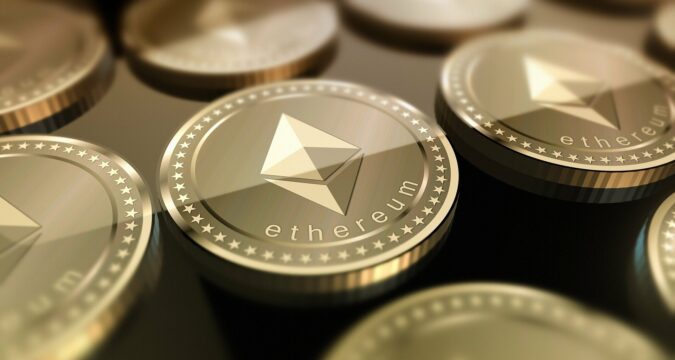
Ethereum and Solana are two of the leading proof-of–stake (PoS) crypto networks currently. They both provide platforms for developing smart contracts and decentralized applications that use those smart contracts.
The two networks also support decentralized finance (DeFi), as well as non-fungible tokens (NFTs). However, they have fundamental differences that make them clearly different from each other.
In this guide, we highlight the differences between the two networks and show their strengths and weaknesses so that you can also easily decide on which project to invest in or use for your next project.
What is Ethereum?
Ethereum is a popular name in crypto. It is the second largest crypto network after Bitcoin, and the first proof-of-stake one. Ethereum is also the network on which hundreds of other projects have launched since its creation.
It is currently the largest network when it comes to smart contracts and decentralized applications. However, the network now has a lot of competitor networks trying to outcompete it, one of which is Solana.
The network was initially launched as a proof-of-work network, just like Bitcoin. It was recently migrated to a PoS network due to lack of scalability, which also led to other issues that have bedeviled the network for years.
This is why there are many other PoS networks that have evolved to offer similar services as Ethereum, but with better scalability and other parameters.
ETH or ether, is the native token for the Ethereum network. It is used mainly to pay for transaction fees on the network, whatever you’re using the network for. Now that the network is a PoS one, the token is also used to secure the network via staking.
The network depends on validators who stake their assets to validate transactions and ensure the security of the network.
Strengths of Ethereum
Ethereum is a highly secure network.
It is the oldest PoS network, so it’s highly reliable to developers.
Weaknesses of Ethereum
Ethereum has scalability issues even after changing to PoS.
Because of the low scalability, transaction fees are quite outrageous.
What is Solana?
Solana is the fifth largest crypto network by market capitalization, and one of the most popular PoS networks. Although it uses PoS like Ethereum, it combines with another consensus mechanism called proof-of-history (PoH).
Because of the PoH mechanism, Solana has grown rapidly to become a preferred network for developers and regular crypto users. Solana is able to process many more transactions than Ethereum and costs a fraction of a dollar per transaction.
The network is also designed to increase capacity automatically at times of intense traffic, which means it can never have congestion issues. This makes Solana one of the top crypto networks currently, and one that continues to grow in popularity.
The native token for the network, SOL is used to pay for transaction fees and also as a governance token. Holders of the token can vote and contribute to decisions on new developments on the network.
SOL is also used to secure the network as validators stake the token to secure the network and receive rewards. The token is currently the fifth most valuable by market capitalization in the crypto market.
Strengths and Weaknesses of Solana
The Solana network, like any other network, has its strengths and weaknesses, and the following are some of them.
Strengths of Solana
It is a fast and efficient network for developers and regular crypto investors.
The transaction fees are much lower than those of Ethereum.
The network’s design makes it impossible for it to be congested as the network enlarges automatically as the need arises.
Weaknesses of Solana
Solana is not as secure as Ethereum, even though it is much faster and cheaper to use.
Final Thoughts
You can use any of these networks to build or invest. However if you’re considering speed and low cost, Solana is a better choice. The token is also more affordable and shows greater promise for the future.


